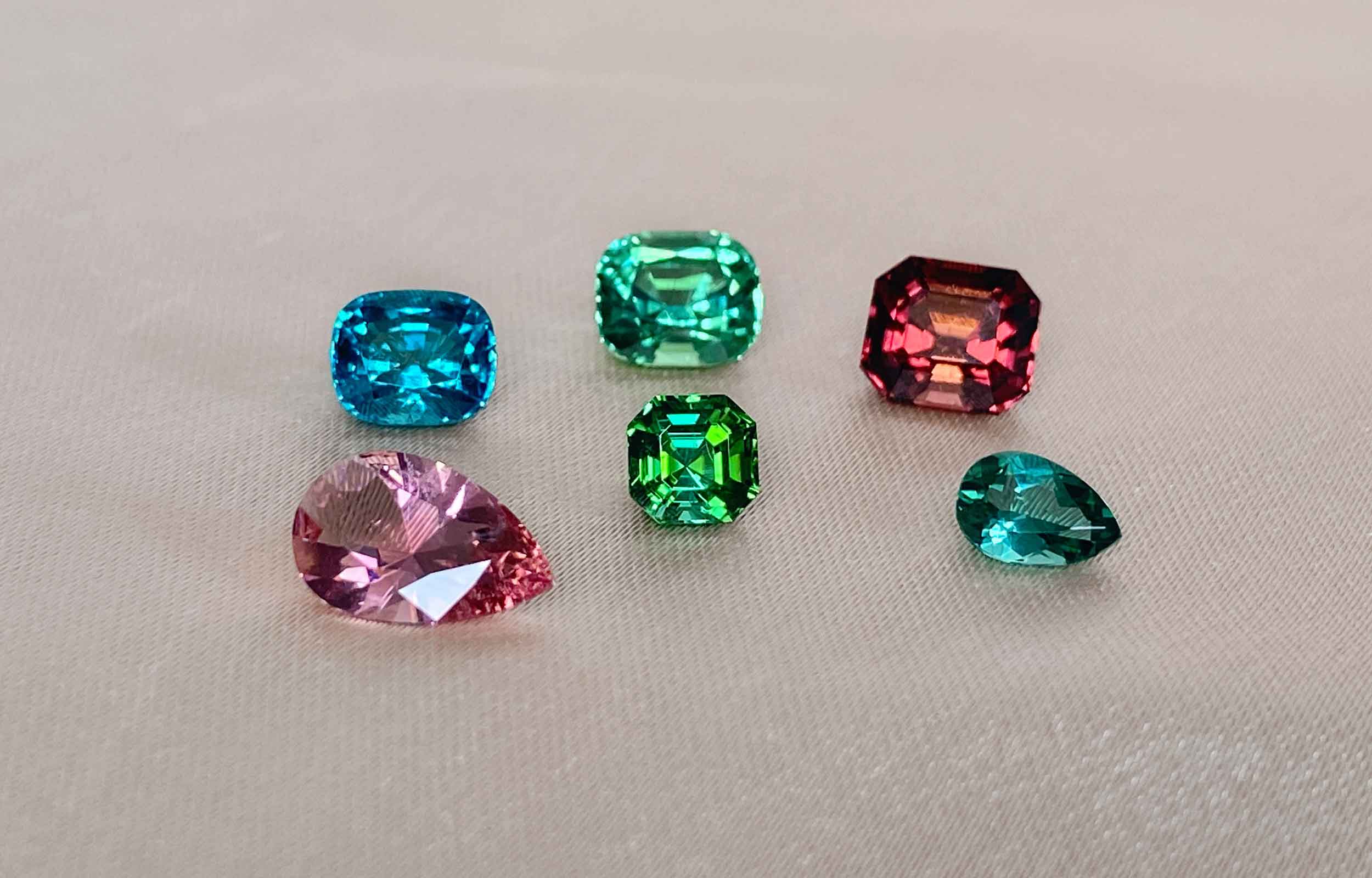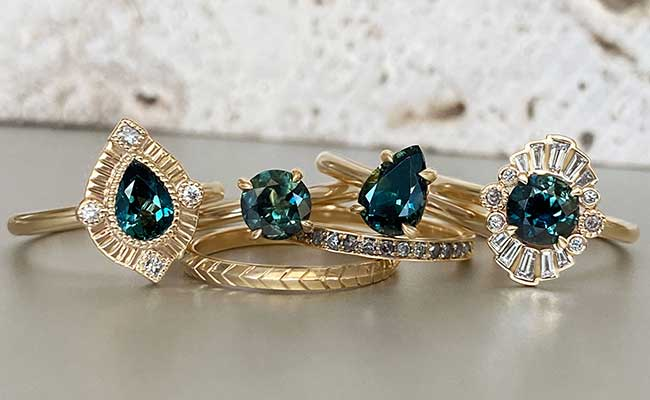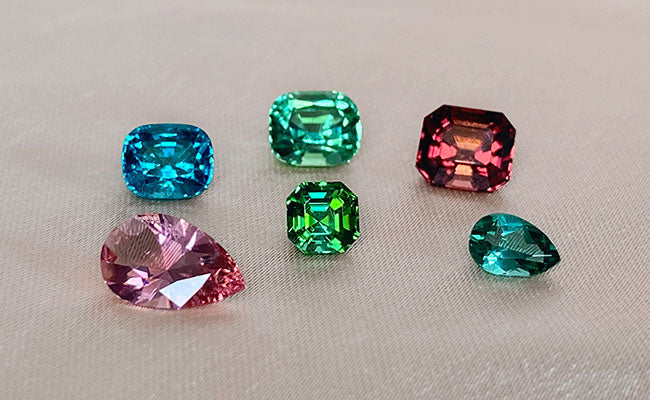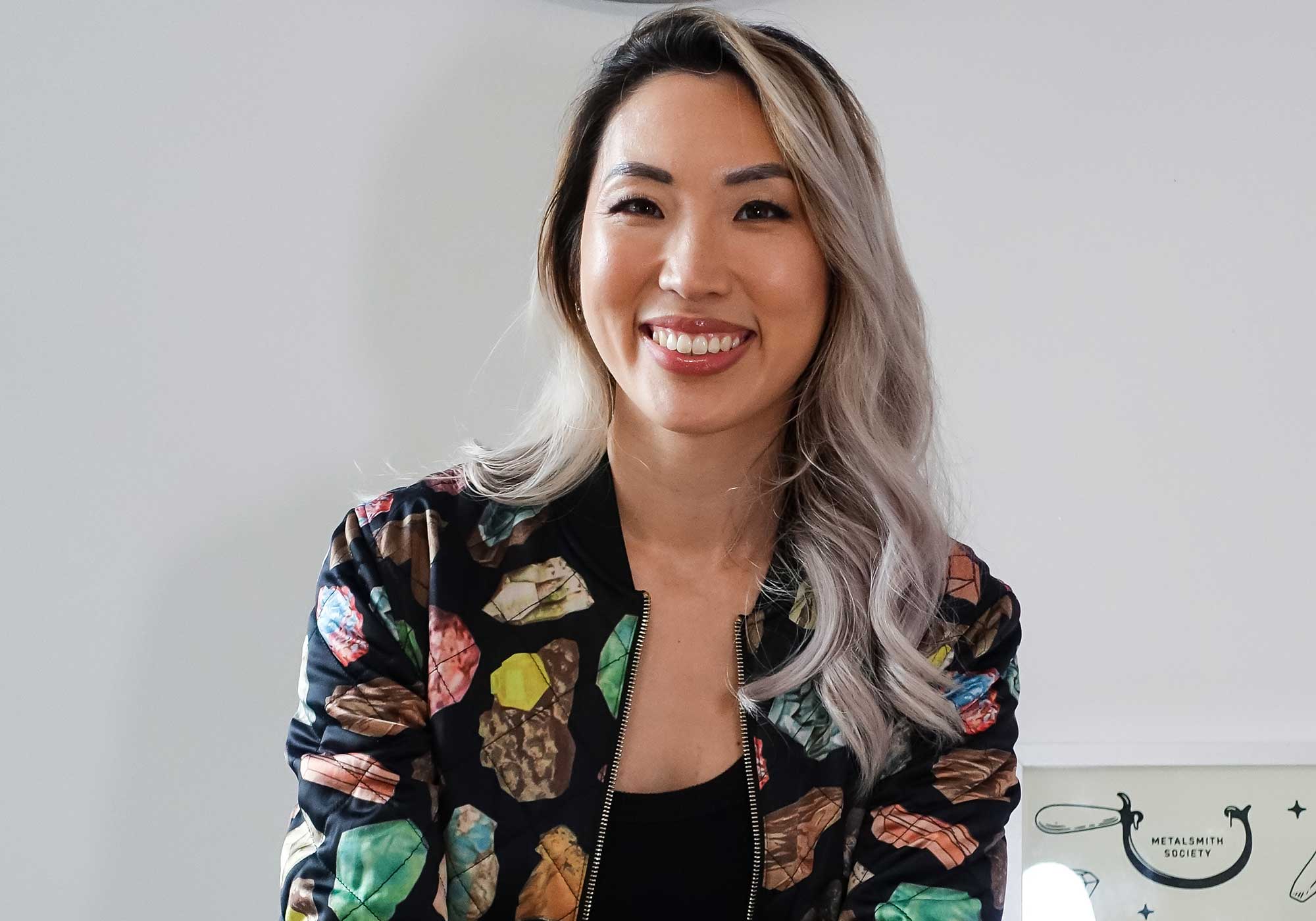
Five surprising engagement ring gemstones to say "I do" to
Ever since mining giant DeBeers launched its Diamonds Are Forever marketing campaign in 1948, the predominant belief has been that an engagement ring should always feature a big blingy white diamond. No exceptions.
Don’t get us wrong. Traditional diamonds are beautiful. If you’ve always dreamt of owning a classic diamond ring, then you can stop reading here. But if you’re one of the growing number of people looking for an alternative to the traditional engagement ring then these surprising engagement-worthy gemstones might be for you.
But first, a little about gemstone hardness.
The Mohs hardness scale ranks the scratch-resistance of minerals, with 10 being the hardest and 1 being the softest. The scale is near logarithmic, not linear, so a 10 is significantly harder than a 9 and so on.
The five gemstones below are ranked in order of hardness, because while breaking rules is encouraged, breaking gems is not. It's important to consider practical factors like durability if you want your engagement ring to stand the test of time.
Coloured and salt and pepper diamonds
Mohs hardness scale: 10
Coloured diamonds aren't your run-of-the-mill diamonds. They're a stunning alternative to traditional white diamonds, offering all the brawn and none of the yawn. Choose from colours such as the more affordable champagnes and cognacs to the rarer yellow and pink diamonds (among others). Pressure and temperature treatments can also create colours such as blue, green, yellow and pink, although it’s important to make sure that any treatments are disclosed so you know what you’re getting. Alternatively, do a complete 180 and pick a black diamond (often also a treated stone). Black diamonds are bold, edgy and blatantly anti-traditional – an easy way to turn the conventional engagement ring right on its head.

Salt and pepper diamonds are another beautiful untraditional diamond option. Typically, the fewer inclusions a diamond has, the more desirable it is. Salt and pepper diamonds however, are desired precisely for their "flaws". Raw and unrefined, they're the perfect choice for those who embrace the beauty in life's imperfections.

Moissanites
Mohs hardness scale: 9.25
Discovered in a meteor crater in 1893 by French chemist, Henri Moissan, moissanite has a fascinating extraterrestrial origin. Today, moissanites are lab-created, budget-friendly and highly durable gems boasting unparalleled brilliance and fire (even moreso than a diamond). Even harder than sapphires, they are a highly durable option for those after a diamond-esque look.

Sapphires and rubies
Mohs hardness scale: 9
Sapphires are the second hardest natural gem in the world (after diamonds) and they don't just come in blue. You can find them in almost all colours of the rainbow, including greens, yellows, oranges, pinks, purples and mixed colours. Another little known fact is that rubies are made of the same material as sapphires. Rubies are a red variety of the mineral corundum, while sapphires are corundum in any other colour. Perfect for bold engagement rings worn for a lifetime, they are loved by rule-breaking couples the world over.

Spinels
Mohs hardness scale: 7.5 - 8
Often overlooked, but no less captivating, spinels are a tough, scratch-resistant stone that deserve more of the limelight. This lesser-known gem comes in beautiful steely blues, greys, purples and teals, as well as bold reds and pinks.
While spinel sits lower on the Mohs hardness scale than diamonds, moissanites, sapphires and rubies, its toughness makes it a surprisingly resilient stone compared to other gems with the same hardness rating (and a worthy contender in the world of untraditional engagement rings).
Historically, the red spinel has been mistaken for ruby, with the most notable example being the Black Prince's Ruby, a large red spinel set into the Crown Jewels.

Morganites and aquamarines
Mohs hardness scale: 7.5 - 8
Soft and romantic, morganite’s peachy pink hues and aquamarine's fresh blue and green hues offer a refreshing departure from traditional engagement ring stones. Both are variations of the mineral beryl. They aren’t as durable as the other stones on this list, but are an affordable and popular option for those in search of the perfect pastel coloured gem.

Why is it important to consider more than just hardness in gemstones?
Hardness is just one factor to keep in mind when selecting a gemstone. "Hardness" describes a gemstone's resistance to scratching, however says nothing about other factors that contribute to durability, like “toughness” or fractures in a stone.
Even diamonds, the hardest stone, can be vulnerable to sharp blows that can cause them to chip or even cleave in half.
Spinels on the other hand are a tough gemstone. While they aren't as scratch-resistant as a diamond, they are more resistant to chipping and breakage.
Emeralds are another example of a reasonably hard stone. As a beryl, it's in the same family as morganites and aquamarines. However it didn't make it onto this list because it tends to have natural imperfections and fractures that makes it prone to breakage.
How does my choice of gemstone affect my engagement ring budget?
We can't have a discussion about alternative gemstones without talking price. Next to almost any other gemstone in the world, a natural diamond of the same size is significantly more expensive.
This is where a jewellery salesperson may offer the not-so-helpful advice that a diamond ring should cost three month’s salary. However, the ‘three month rule’ is actually the result of a series of highly effective Debeers marketing campaigns (and the number of months has shifted to suit their agenda over the decades).
Other than practicality and durability considerations, there are no rules when it comes to engagement rings. Sapphires, moissanites and lab created diamonds have excellent hardness and are comparatively more affordable than mined diamonds. This means a lower price point for your engagement ring or a larger stone for your budget.
When deciding on a stone, consider where your priorities lie. Do you want more ‘bling for buck’ or do you have a specific colour or gem in mind?

Need a recommendation on your perfect gem?
Diamonds these days may seem like the standard. But why be standard? Unconventional gems make for unconventional rings, and if that feels like you, here’s your permission to go for it.
Our favourite pieces to create are those with distinctive gems and special stories, like these ones from our customers. Shop the gemstone collection or tell us what colour you imagine your engagement ring to be and we'll send you a personalised gemstone suggestion.





